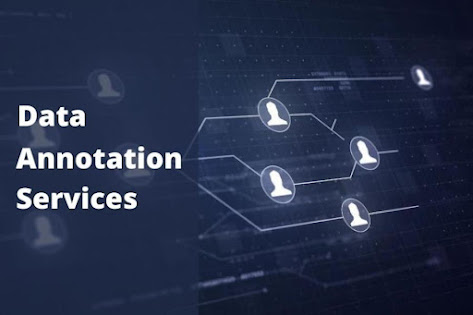OCR Training Datasets: Enhance Your Model's Accuracy
Introduction:
In a world awash with printed and handwritten text, the ability to transform these analog forms of communication into digital, machine-readable data has revolutionized our interactions with information. Optical Character Recognition (OCR) technology has emerged as the driving force behind this transformation, enabling everything from document digitization to automated data entry. However, the precision and dependability of OCR systems hinge on a critical factor: the quality and diversity of OCR training datasets. In this comprehensive exploration, we'll unveil the intricate world of OCR training datasets and showcase how Globose Technology Solutions Pvt Ltd (GTS) is spearheading advancements in OCR model accuracy through their meticulously curated datasets.
Understanding OCR and Training Data:
OCR is the technology that enables computers to recognize and extract text from images, scans, and documents. Training an OCR system involves exposing it to a wide variety of text samples to help it learn and recognize different fonts, languages, styles, and writing variations. The training data used for OCR models is a crucial factor in determining the system's accuracy and adaptability.
OCR's Transformative Power:
Imagine a world where printed books, handwritten notes, and ancient manuscripts could be converted into digital text effortlessly. OCR technology has made this vision a reality. By scanning and analyzing text characters, OCR technology converts physical text into machine-readable data, ushering in an era of efficiency, accessibility, and automation.
The Crucial Role of Training Datasets:
OCR technology doesn't just magically recognize text; it learns from vast amounts of training data. An OCR system's accuracy, speed, and ability to decipher diverse fonts, languages, and even handwritten styles all stem from the richness and quality of the training dataset it is exposed to. GTS recognizes that the strength of an OCR model lies in the data it's fed.
GTS's Approach: Elevating OCR Accuracy
Diverse Data Collection: GTS understands that OCR algorithms need to handle various types of documents, fonts, languages, and writing styles. The company strategically sources a diverse range of data, including printed text, handwritten notes, different scripts, and historical documents. This diversity ensures that the OCR model can tackle a multitude of real-world scenarios.
Annotating with Precision: Precision is paramount in OCR training. GTS employs a team of skilled annotators who meticulously label and annotate the training data. Each character, word, and punctuation mark is tagged accurately, providing the algorithm with a robust ground truth to learn from.
Quality Assurance: GTS's commitment to data quality assurance is unwavering. Rigorous validation and cross-checking processes ensure that the dataset is free from errors, anomalies, and inconsistencies, leading to an OCR model that's primed for excellence.
Language and Script Inclusivity: Written communication knows no bounds, spanning languages and scripts from around the world. GTS's OCR training datasets include a wide array of languages and scripts, enabling the OCR model to seamlessly interpret text from diverse sources.
The Impact of GTS's OCR Training Data Expertise:
GTS's unwavering commitment to crafting exceptional OCR training datasets reverberates through a multitude of impactful outcomes:
Document Digitization: The accurate conversion of physical documents into digital format is a cornerstone of modern efficiency. GTS's precise OCR models enable businesses to swiftly digitize their archives, enhancing document accessibility and searchability. This translates to streamlined operations, reduced paper waste, and simplified information retrieval.
Efficient Data Extraction: In the corporate landscape, data extraction from documents like receipts, invoices, and forms is a time-consuming process. However, OCR models fueled by GTS's datasets act as digital assistants, efficiently extracting pertinent information. This automation accelerates data entry workflows, minimizes errors, and allows employees to focus on higher-value tasks.
Archival Preservation: Historical texts are delicate treasures that risk deterioration over time. GTS's OCR training datasets play a vital role in preserving these artifacts. By digitizing and converting aging manuscripts and documents into machine-readable format, OCR models ensure that the knowledge encapsulated within these texts is accessible to future generations.
Multilingual Enrichment: In our interconnected world, multilingualism is a bridge to understanding diverse cultures and markets. GTS's diverse training datasets empower OCR models to not only decipher text from various languages but also to provide cross-lingual text analysis and translation capabilities. This fosters effective communication on a global scale.
GTS: The Pinnacle of OCR Training Data Excellence
Globose Technology Solutions Pvt Ltd (GTS) isn't just providing OCR training datasets; they're delivering accuracy and reliability. With a focus on diversity, handwriting inclusion, annotation precision, and real-world challenges, GTS is redefining the standards of OCR model training.
Conclusion:
In the era of digital transformation, OCR technology stands as a bridge between the physical and digital worlds. However, the accuracy and adaptability of OCR systems hinge on the quality of the training data they are exposed to. Globose Technology Solutions Pvt Ltd (GTS) shines as a leader in crafting OCR training datasets that elevate model accuracy, enabling machines to read and interpret text with astounding precision. As OCR continues to reshape industries and enhance processes, GTS's role in fortifying OCR models with diverse, accurate, and real-world data is indispensable. The future of OCR accuracy is here, thanks to the expertise and dedication of GTS.






Comments
Post a Comment